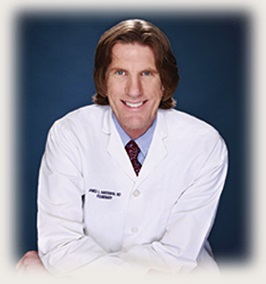
Dr. James L. Hardeman has seen firsthand the consequences of unhealthy lifestyle habits during his 30 years as a practicing physician, and he says they’re just not worth it.
“There are very clear, biological reasons why we are compelled to eat sugary, fatty foods; but if there was ever a case of ‘too much of a good thing,’ it’s a sedentary lifestyle coupled with delicious, readily available food,” says Dr. Hardeman, author of “Appears Younger than Stated Age,” (www.jameslhardeman.com ), a pragmatic guide to looking younger.
As we evolved, sugar, salt and fat were rare yet necessary commodities, and that’s why we enjoy them so much, he says. But there are devastating consequences associated with too much rest, sugar and fat – including heart disease, obesity, diabetes and sleep apnea, he says.
“The ‘easy life’ isn’t so easy in the long term,” he says.
Multiple studies indicate the multidimensional nature of healthy habits, including one recently published by the Lund University Diabetes Centre in Sweden. The study tracked significant improvements in men who changed their lifestyle from inactive to active, and the results were impressive.
Waist circumference and blood pressure drastically improved after six months. But the study also showed that health also improved at the microscopic level, such as the functioning of genes and how they express proteins. Other studies indicate that gene improvement can occur after just one workout.
“Our bodies want to be healthy, and it’s just a matter of getting and staying motivated,” says Dr. Hardeman, who offers tips:
• Don’t fall into the “I don’t have time” trap. Time is arguably the most precious commodity any individual has – and that means life span. Don’t have time to chop veggies before dinner or work out after work? Then make time! You will almost certainly live longer by following a healthier lifestyle. Need more incentive than a vague sense of health? How about avoiding the lifestyle restrictions imposed by diabetes, or the medical interventions necessitated by a heart attack?
• Keep in mind the intake/output principle. Miracle diets don’t exist. While some people can burn calories more easily than others, it ultimately comes down to what you put into your body and what you do with that energy. If you want to lose or maintain weight, think of a 360-calorie muffin as a loan you have to pay back with 35 to 40 minutes worth of jogging, or a 55-minute walk.
• Keep doing fun things! Remember what it was like to be a little kid? Back then, simply running around during a game of tag was a blast! It’s never too late to turn exercise into play. Try snowboarding, dancing at a club, hiking a beautiful landscape or taking a bicycle ride with the family.
• Find the motivator that works for you. Many people find a partner helps them stay motivated to exercise. If you’re not inclined to walk in the morning, but you don’t want to let down your walking partner, then you’re more likely to walk anyway. Same goes for a dog that needs to be walked.
However, the most dependable person to keep you motivated is you. If your routine is getting a dull, mix it up with an mp3 player. Whether it’s Metallica, Manilow or Mozart, you can program a personal adrenalin soundtrack to keep yourself fully amped.
About Dr. James L. Hardeman
Dr. James L. Hardeman has been a physician for 30 years. Triple board certified in Internal Medicine, Pulmonary Diseases, and Critical Care Medicine, Dr. Hardeman works both in a hospital and at his own busy office practice. After graduating Summa Cum Laude from the University of California at Irvine, he attended Baylor College of Medicine where he graduated with honors.
Postgraduate training in Internal Medicine and Pulmonary/Critical Care Medicine took place at USC and UCI.
Supplemental- Dr. Hardeman’s article: Everything you think about losing weight is wrong – New York Post http://nypost.com/2013/08/04/everything-you-think-about-losing-weight-is-wrong/

